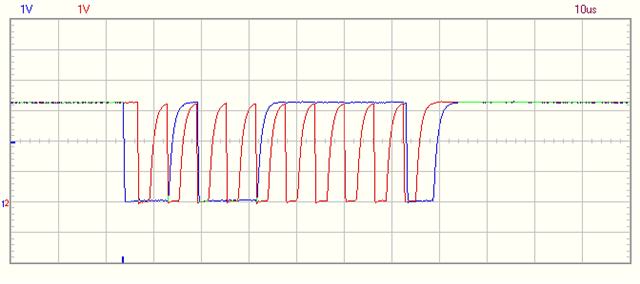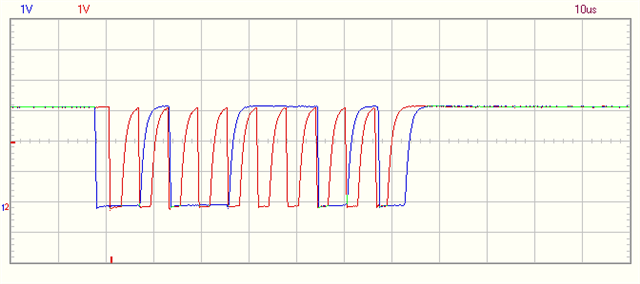Other Parts Discussed in Thread: CC8530, , , TAS2563
Hello,
One of our new products has a custom PCB using 2 TAS2562s and a CC8530. The chip gets stuck in a startup loop because the i2c bus is not working. I have included a scope capture depicting the TAS2562 not acknowledging when addressed on the i2c bus. The address select pin is tied to VDD, so its i2c address should be 4F. I measured the voltage on The enable pin as 3.2V (IOVDD is 3.3V), so it should not be in hardware shutdown. The i2c bus uses 4.7kOhm pull up resistors and has 33 ohm series termination resistors on the CC8530 side of the bus. I am unsure of how to proceed to find the source of the problem–any recommendations to continue problem solving would be greatly appreciated.
Thank you,
Austin



